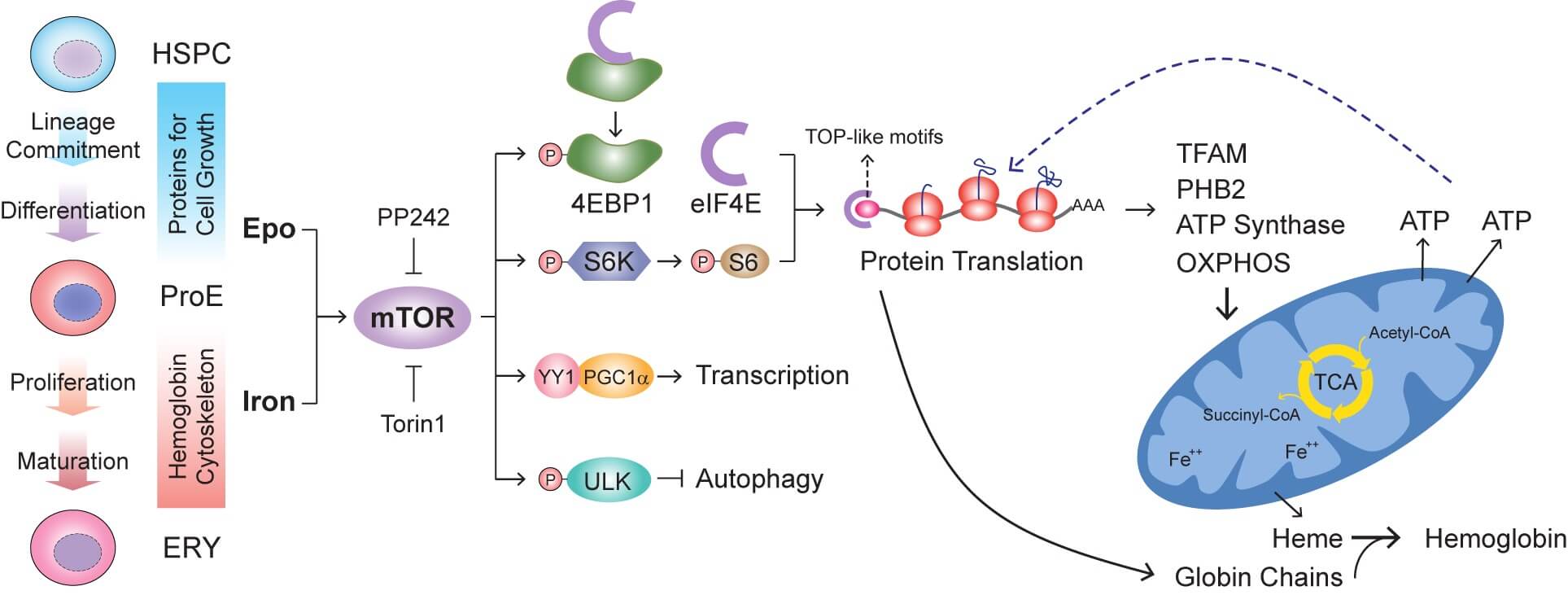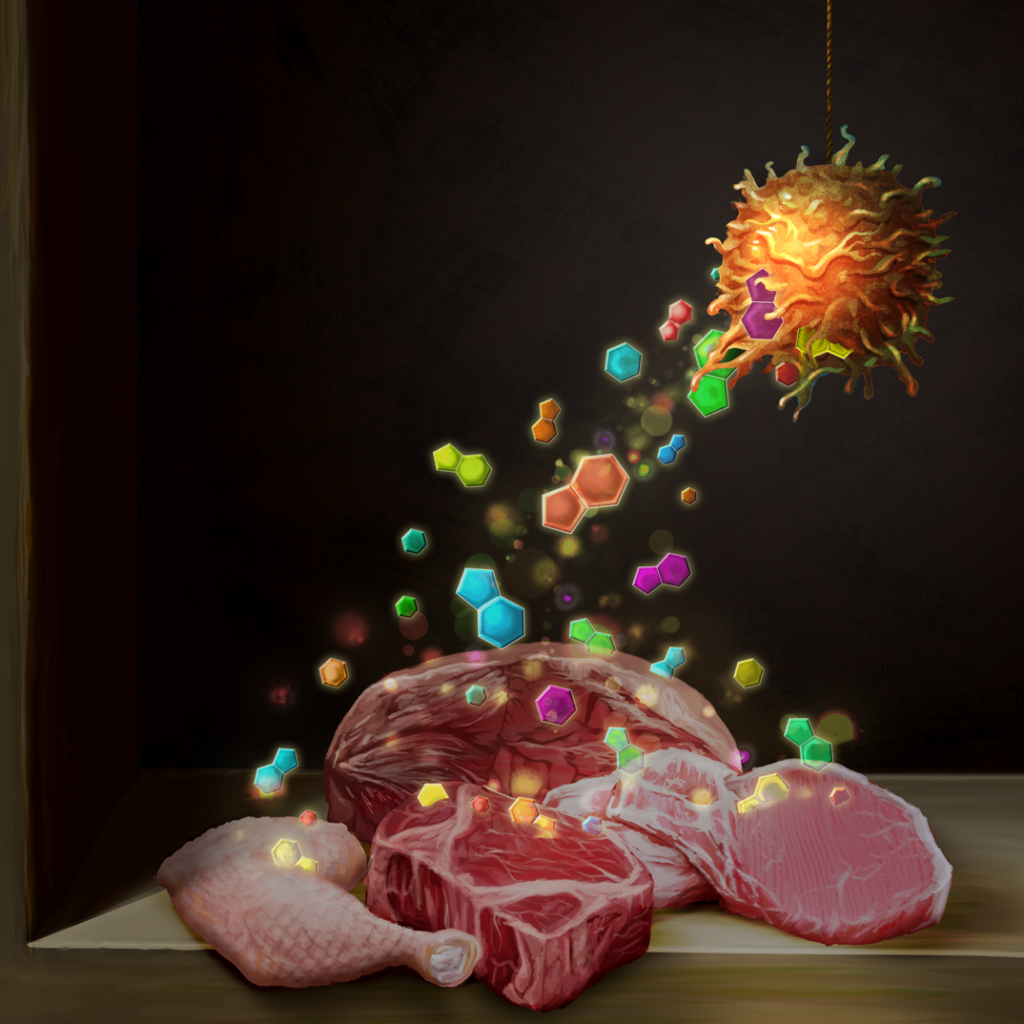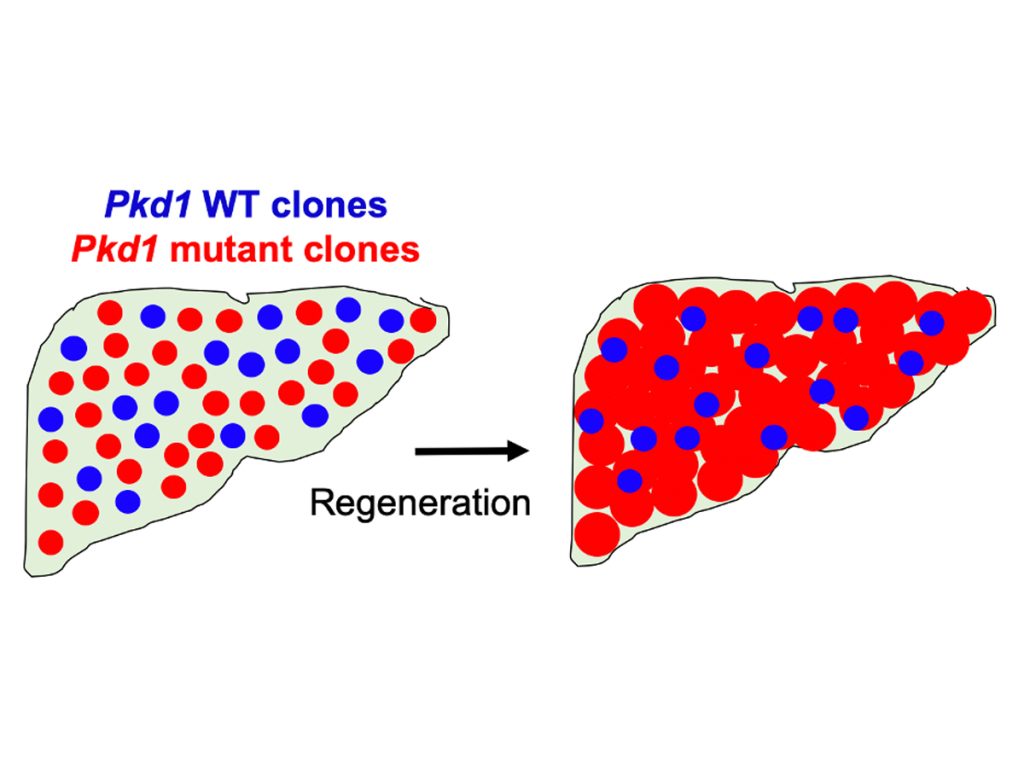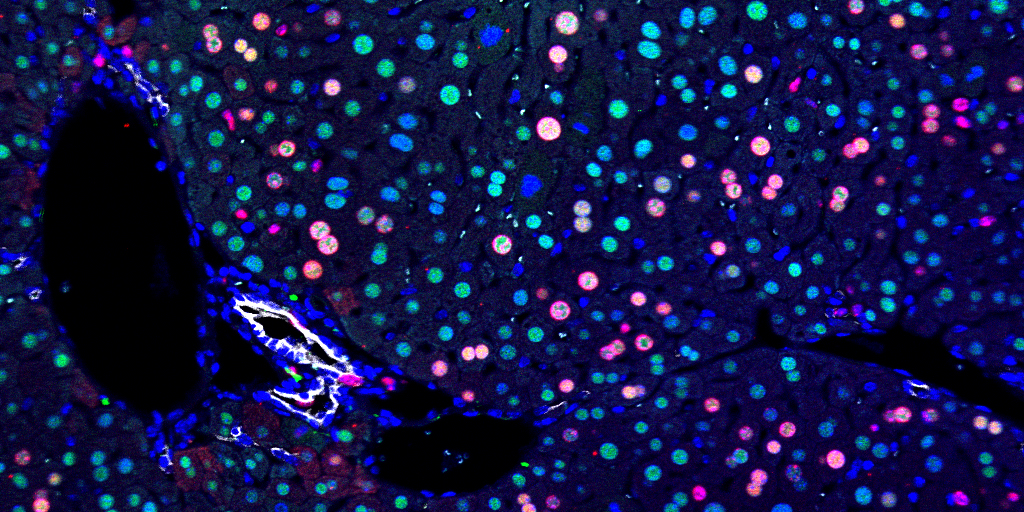Scientists at the Children’s Medical Center Research Institute at UT Southwestern (CRI) have identified a new pathway that regulates the activity of mitochondria required for the production of red blood cells.
The continuous production of red blood cells, known as erythropoiesis, provides vital life-support by supplying tissues and organs with oxygen. Dysregulation of this process can lead to a number of disorders, including sickle cell anemia and β-thalassemia.

CRI researchers, led by Dr. Jian Xu, sought to better understand the molecular processes controlling erythroid (red blood) cell proliferation, maturation, and energy metabolism. They compared the genome-scale expression levels of proteins and RNAs between human hematopoietic stem/progenitor cells and erythroid cells, uncovering new pathways related to mitochondrial biogenesis that were enhanced through regulation of protein translation.
Researchers were then able to demonstrate through a series of genetic and biochemical experiments that depletion of mitochondria in erythroid cells leads to changes in intracellular metabolism, epigenetic modifications, deregulated gene expression, and defective erythropoiesis in cells and animal models.
These findings from the Xu lab contribute to our understanding of the hematologic defects associated with mitochondrial diseases and aging. The Xu lab intends to further investigate the relationships between metabolism, epigenetics, and stem cell development under normal and pathological conditions.
Read the paper and news and views published in Nature Cell Biology.
Read the Editors’ Choice by Science Signaling.



